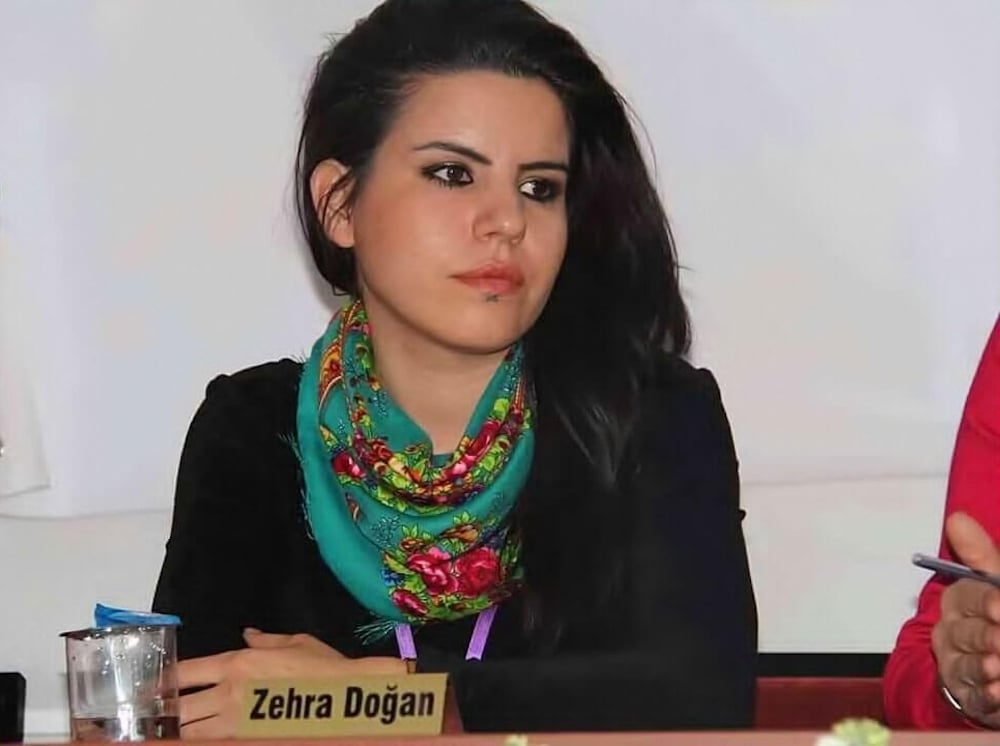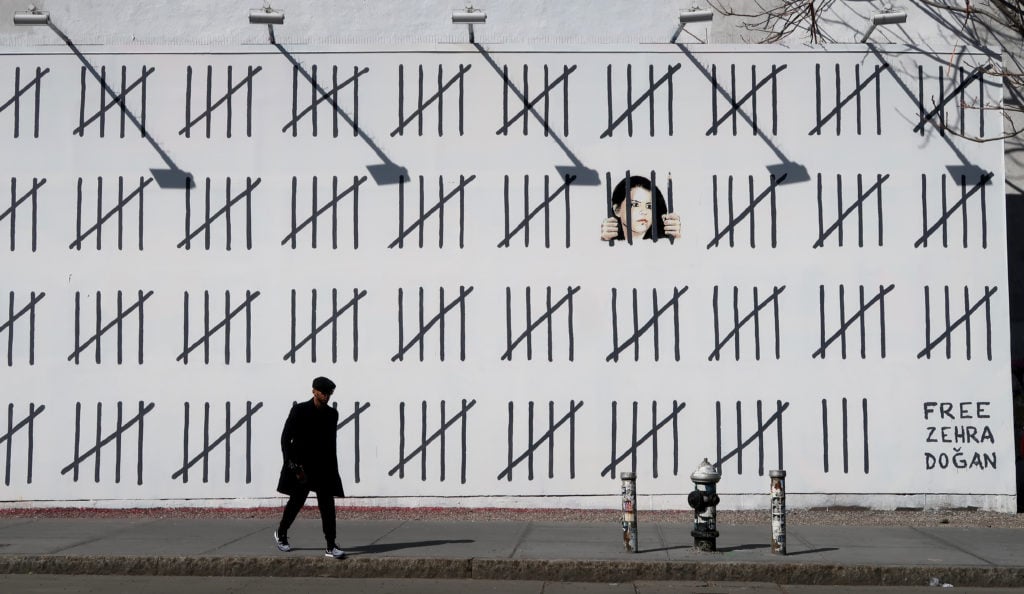Law & Politics
After Three Years of Prison for a Watercolor, Outspoken Kurdish Artist Zehra Doğan Has Been Freed in Turkey
The journalist and artist was arrested in 2017 for painting a military attack in Turkey.

The journalist and artist was arrested in 2017 for painting a military attack in Turkey.

Caroline Goldstein

The Kurdish journalist and artist Zehra Doğan was freed yesterday after nearly three years in prison, Hyperallergic reports. Doğan first caught the attention of the Turkish authorities back in 2017 with a watercolor that depicted a Kurdish district after Turkish security forces set it on fire and largely destroyed it.
The painting shows plumes of smoke erupting over a skyline, and is peppered with images of the bright red Turkish flags. Even though the image is based on a photograph, authorities believed it linked her to the Kurdistan Workers’ Party (PKK), which the Turkish government considers a terrorist organization.

Left: the photograph of Nusaybin, Turkey, after military forces destroyed it. Right, Dogan’s painting from 2016.
In a now deleted tweet following her sentencing, Doğan wrote “I was given two years and 10 months [in prison] only because I painted Turkish flags on destroyed buildings. However, [the Turkish government] caused this. I only painted it.”
Doğan’s case immediately sparked a surge of media attention from human rights advocacy groups and journalism and arts communities. Street art provocateur Banksy painted a huge tribute to the jailed artist on the Houston Bowery Wall in March 2018. The mural, titled Free Zehra Doğan, depicted a series of black tally marks painted on a stark white wall, one for each day of Doğan’s prison sentence up to that point. A portrait of the artist appears behind a set of these tally-mark bars, one of which is actually a pencil—a not-so-thinly veiled reference to Turkey’s suppression of free speech.

Bansky’s mural supporting jailed Turkish artist Zehra Dogan on April 18, 2018, in New York City. Photo by Gary Hershorn/Getty Images.
Doğan herself reached out to Banksy through what she called “an illegal letter” sent from within the Diyarbakir Prison in southeast Turkey. In the letter, Zehra thanks the street artist for bringing attention to her cause with his mural and also details the terrible conditions of her prison. She has since recounted some of the frightening conditions she endured, and has said that in order to make art without access to traditional supplies she had to draw on newspapers and bed sheets using plant matter and menstrual blood, according to the Turkish media site Bianet.
But ultimately, she wrote, “This painting was worth my time in prison because I managed to show the reality of [the Kurdish region of] Nusaybin.”
Since her release on Sunday, the Twittersphere is rallying around her, with jubilant messages announcing her release accompanied by hashtags like #TurkeyCrackdown, #TerroristTurkey, and #FreeTurkeyMedia. Organizations from around the world, including PEN America, World Citizen, and At Risk Artists have joined in to voice their support.
Before her arrest, Doğan was a writer at JINHA, an outspoken feminist news organization, and in a video posted to the site after her release, she describes being more committed than ever to continue her work as a journalist and artist, saying “I will continue the struggle.”